Why Startups Fail After Version 1 — Hard-Earned Lessons from a CTO with 30+ Companies
Episode 31 of the Fearless Founders podcast features CTO Keith Deutsch, a technology veteran with experience in over 30 startups. In this value-packed episode, Deutsch shares expert insights into what makes startups succeed — and fail — after launching their first product. From product strategy and market fit to team dynamics and version 2 roadmaps, this episode is a masterclass for startup founders, especially those navigating early-stage growth.
Why Most Startups Struggle After Version 1
Launching a minimum viable product (MVP) is often seen as the biggest milestone in a startup’s journey, but as Keith Deutsch explains, it’s just the beginning. Many startups experience initial success with version 1, only to hit a wall when trying to evolve or scale.
Common reasons for failure after MVP include:
- Misunderstanding the customer’s real-world environment
- Underestimating market resistance to disruption
- Failing to architect version 1 with long-term flexibility in mind
- Shifting focus entirely to maintenance, stalling innovation
Deutsch emphasizes that version 2 requires more than iterative improvements — it demands a strategic pivot rooted in deep customer understanding and technical foresight.
The Importance of Understanding Customer Workflows
A key theme in the episode is the need for founders to deeply understand their customer’s workflow and ecosystem — not just their surface-level pain points. Many products fail not because they lack value, but because they disrupt existing systems that users rely on (even if those systems are inefficient).
For example, Deutsch shares a case where a promising product failed because it undermined how liability was distributed in civil engineering projects. The technology worked, but the market wasn’t ready to accept the disruption it caused.
Startup founders must ask:
- What’s already working “well enough” for users?
- What invisible incentives or liabilities are baked into the status quo?
- Where can a new product create value without triggering resistance?
Building a Flexible, Scalable Product Architecture
Another pillar of Deutsch’s advice is intentional product architecture. Instead of building narrowly to solve one problem, founders should design systems that can support future versions and extensions.
Key takeaways on product development:
- Start with a robust data model based on business objects
- Build internal architecture with clear abstractions and contracts
- Avoid over-engineering, but don’t underbuild your foundation
This mindset allows startups to iterate faster, adapt to changing market needs, and evolve without major rebuilds.
Team Dynamics: Hiring for Momentum, Not Just Scale
As startups grow, they often hire experienced professionals from large companies to “professionalize” operations. While this seems like a natural step, Deutsch warns that bringing in steady-state managers too early can stall progress.
Instead, founders should:
- Continue hiring scrappy, self-directed engineers even post-MVP
- Resist pressure from investors to “scale” prematurely
- Maintain a balance between innovation and incremental improvement
One practical strategy: time segmentation. Rather than splitting teams, allocate blocks of time for both maintenance and forward-looking development to keep the product evolving without sacrificing stability.
Managing Technical Debt and Version 2 Strategy
Most version 1 products are built quickly, often accruing technical debt. But version 2 isn’t just a cleaner version — it should represent a strategic leap forward. That requires revisiting the original product vision, understanding market shifts, and executing on a roadmap that aligns with long-term goals.
Deutsch stresses that version 2 should:
- Be informed by real usage and feedback
- Build upon the original vision, not just patch what’s broken
- Preserve engineering knowledge to avoid disconnects
Success beyond version 1 comes down to strategic patience, market awareness, and adaptable execution. The startup journey isn’t about building faster — it’s about building smarter. Deutsch’s experience across 30+ startups makes it clear: the most successful founders are those who stay curious, challenge assumptions, and design their path beyond the MVP.
Join Benoy and Ike on the Fearless Founders podcast, where professionalism meets fun, and every episode is a step towards realizing your entrepreneurial dreams. Tune in on YouTube and Spotify, and visit their website for access to premium services that elevate your business journey. This is your opportunity to learn, grow, and thrive in the dynamic world of entrepreneurship.
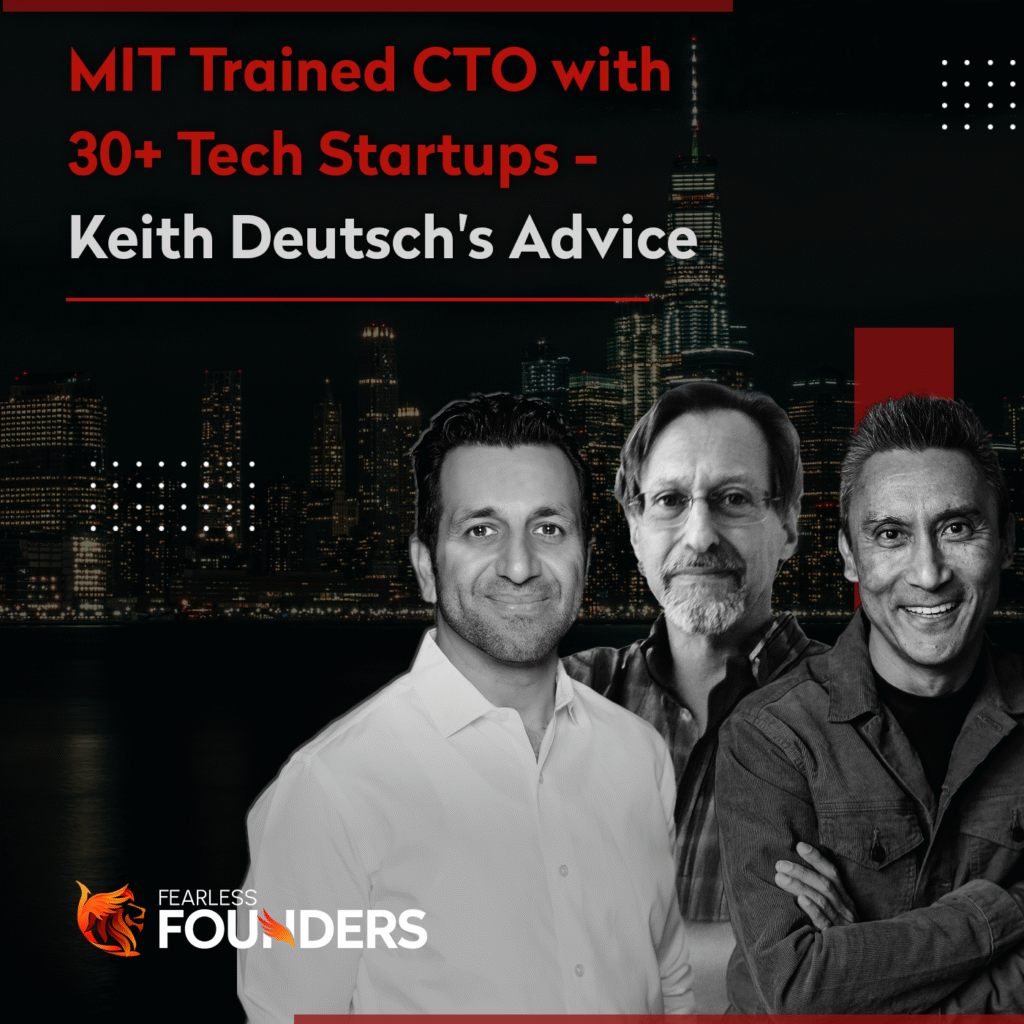
In this episode of Fearless Founders, Ike & Benoy sit down with MIT-trained CTO Keith Deutsch, who has helped shape over 30 startups from the ground up. Keith shares hard-earned insights on building successful tech products, navigating founder blind spots, and avoiding costly missteps between version 1 and version 2. Whether you’re a first-time founder or scaling your startup, this conversation is packed with lessons you won’t want to miss.
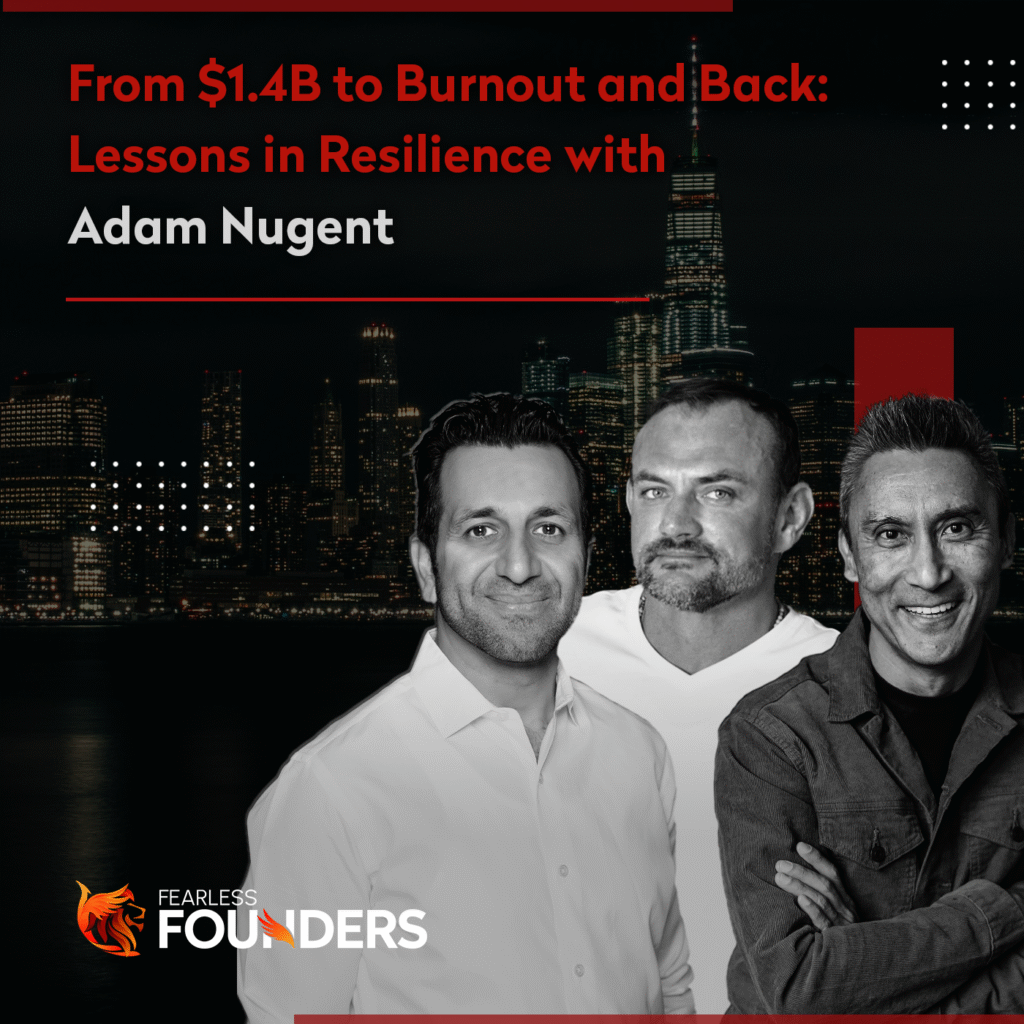
Adam opens up about the collapse of his business, the emotional aftermath, and his journey through rock bottom toward personal and professional reinvention. From the pitfalls of chasing external validation to the power of rebuilding your identity, this conversation is packed with hard-won wisdom for every entrepreneur navigating risk, growth, and purpose.

In Episode 29 of Fearless Founders, hosts Benoy Tamang and Ike Kavas welcomed Abby Martin, HR expert and President of Amplēo HR, for a deep dive into what truly drives scalable, people-first growth in startups.
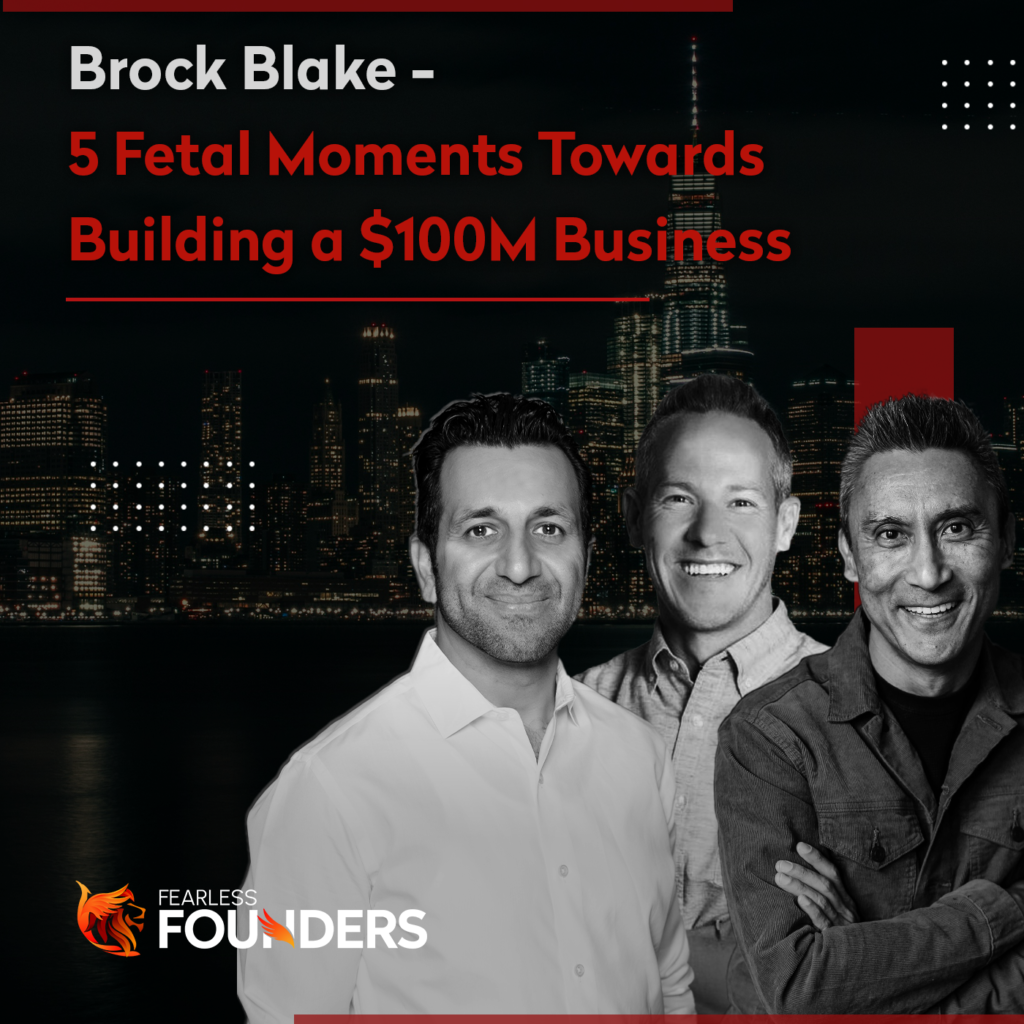
In this episode 28 of Fearless Founders, Brock Blake, co-founder and CEO of Lendio, shares the unfiltered reality behind building a $100M business. He walks us through five pivotal “fetal position” moments—those gut-wrenching lows that tested his resolve, leadership, and belief in the mission.

In Episode 27 of Fearless Founders, we sit down with Fengmin Gong, a pioneering technologist and four-time exited founder, known for his instrumental roles in building companies like Palo Alto Networks and CipherOptics.
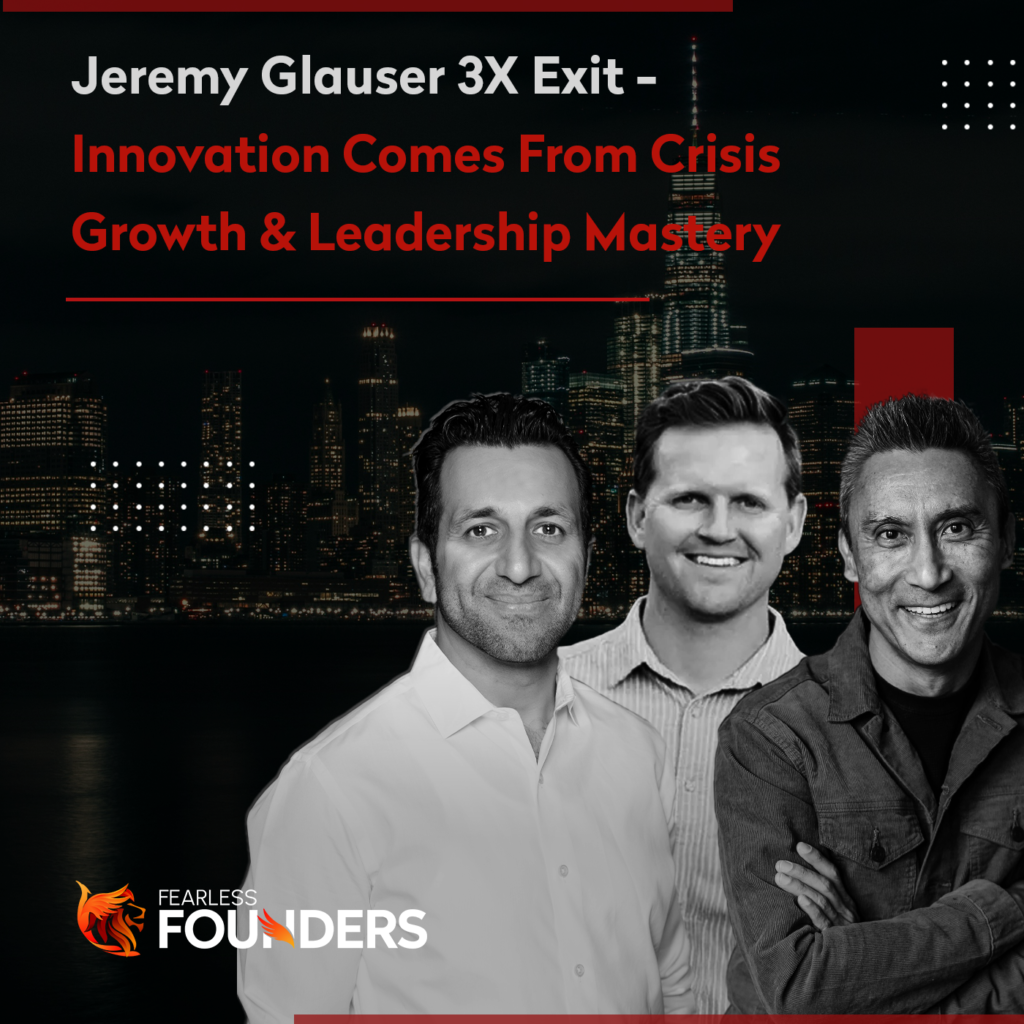
In this episode of Fearless Founders, Jeremy Glauser, a three-time exit entrepreneur, shares his journey of building and scaling multiple businesses. He opens up about the challenges of entrepreneurship, from navigating market timing to the emotional toll of setbacks.
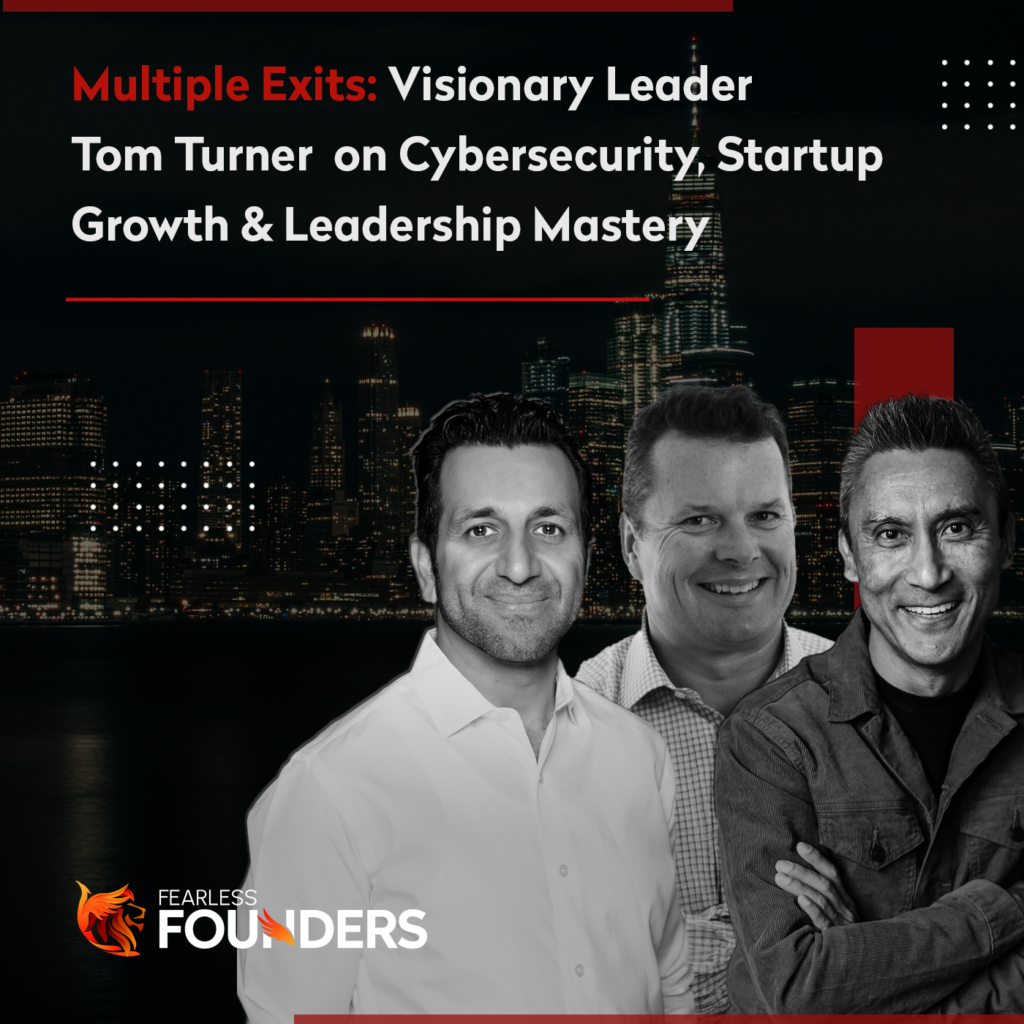
In Episode 25 of Fearless Founders, we sit down with Tom Turner, a visionary leader in cybersecurity and a seasoned entrepreneur with multiple successful exits. With a career spanning decades in the tech industry, Tom shares his insights on building and scaling startups, aligning sales and marketing for growth, and the critical role of leadership in fast-moving industries.

In Episode 24 of Fearless Founders, Peter Harris, Managing Director of University Growth Fund, shares his remarkable journey from real estate and micro-franchising in Ghana to leading a venture fund in Utah. With years of experience evaluating startups and raising capital, Peter offers invaluable insights into when to raise funds, navigating investor relationships, and building successful businesses.
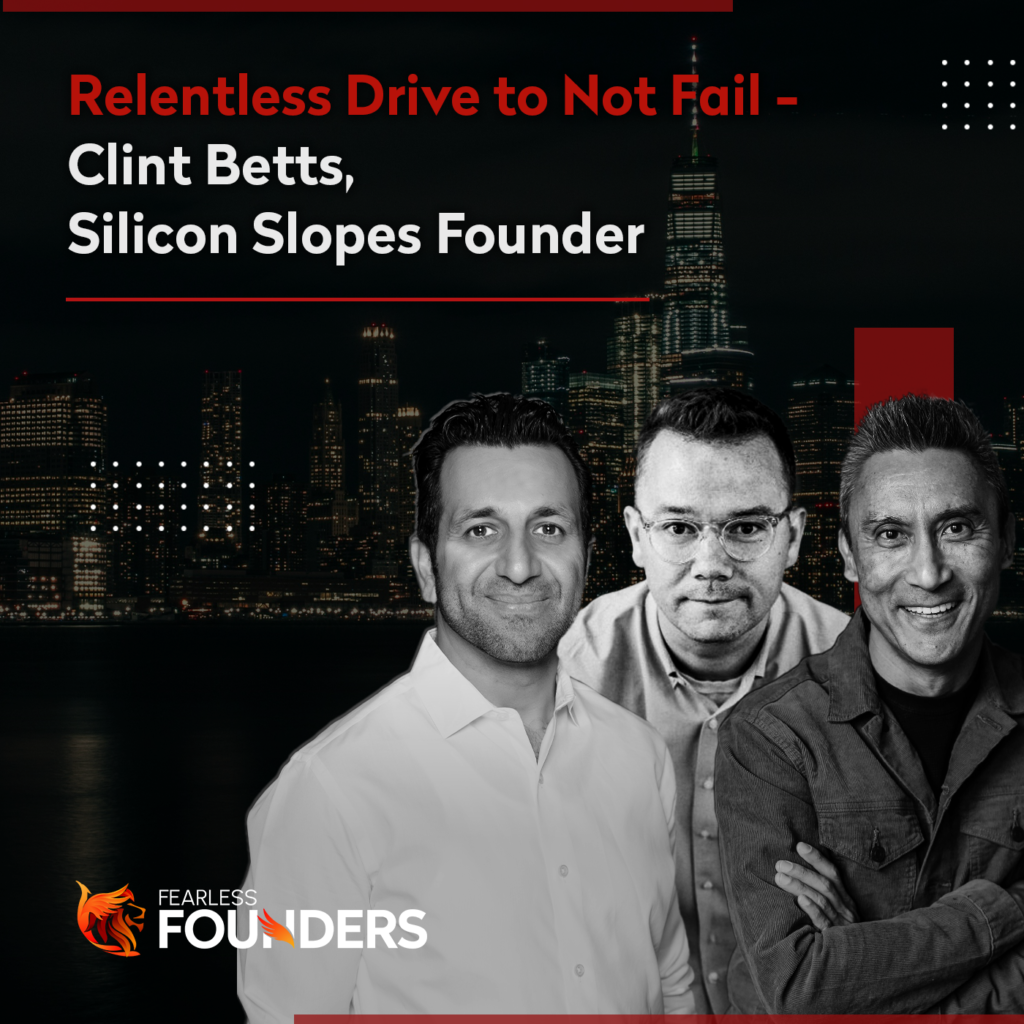
In this episode 23 of Fearless Founders, our guest, Clint Betts is a key figure in the startup and tech community, best known for founding Silicon Slopes and Kokomo. He has played a major role in fostering entrepreneurship, connecting leaders, and shaping Utah’s tech landscape.

In this episode 22 of Fearless Founders, Jeremy Docken is a seasoned entrepreneur and founder of Calderas, a healthcare technology company. With a background in accounting and forensic finance at Arthur Andersen and KPMG, he transitioned into the tech and pharmaceutical space, building innovative solutions.


